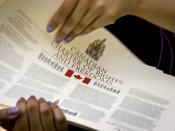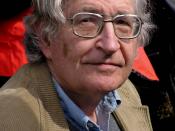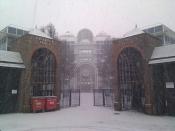'Taking on anti-Semites and Holocaust deniers in the sanctified courtroom environment is like responding to someone who calls your mother a prostitute. The right to freedom of expression can be described as a war. It is a war that has lasted for centuries and may last for centuries more. It is a war between freedom of expression and social intolerance. In this war there are many battles. The battle on which this brief essay centers itself is the battle between freedom of speech and laws limiting that freedom; more specifically the ability to spread hate propaganda and the 'hate laws'. Included in the essay is a brief outline of one skirmish that has taken place (Keegstra ). Those who fight on the side supporting freedom of speech do so for several reasons. Braun declares that it is a basic democratic right to voice your own opinion . Douglas Christie has gained notoriety for his vigorous representation of high-profile, controversial clients, charged under the hate laws.
He advocates freedom of speech for two main reasons: a) he finds it abhorrent that the state can legislate thoughts and words, and b) he often agrees with the views held by his clients. Others such as Noam Chomsky, a brilliant intellectual, argue not for the views expressed, but the ability to express them. Lining up on the other side of the battle you have: Derek Raymaker, David Kilgour, Victor Ramraj, and Bruce Elman. They argue that there is definitely a moral place for laws regarding hate speech, whether they are criminal or not. There was recently a new development in the Canadian war for freedom of expression. Introduced in April 1982 was a new and important strategic battleground.
With the Charter of Rights and Freedoms the war could be won or lost by either...


